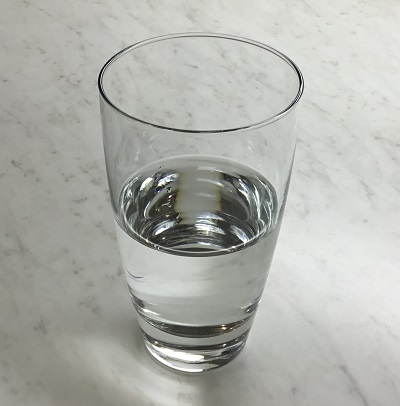The goal of an evidence-based treatment plan for the medical illness of addiction would be to assist individuals in living healthy, functional lives, in connection with others, such that substance use does not result in negative consequences for themselves, others, or society.
 However, society’s primary measure of recovery from addiction – and its measure of merit to receive continued treatment for addiction – is negative urine drug screens for illicit and non-prescribed substances. Secondarily, society measures addiction recovery progress in terms of reduced contact with 1) the criminal justice system, 2) emergency health care services, 3) child protective services, and 4) social services programs.
However, society’s primary measure of recovery from addiction – and its measure of merit to receive continued treatment for addiction – is negative urine drug screens for illicit and non-prescribed substances. Secondarily, society measures addiction recovery progress in terms of reduced contact with 1) the criminal justice system, 2) emergency health care services, 3) child protective services, and 4) social services programs.
Achievement of legal negative urine drug screens requires abstaining from illicit and non-prescribed substances. (The illogic and injustice of citizens with a medical illness being required to prove they are asymptomatic of that illness to receive treatment for it is beyond the scope of this post.)
After medical care for the medical condition of addiction, this is what research suggests helps most people, most of the time, better than other ways, and better than nothing, to increase the likelihood of abstaining from substances:
Maintain a state of stability: physically, emotionally, cognitively, relationally, spatially, geographically, financially. Practice on-going awareness and, if any factors become unstable, adjust until they’re stable again.
Regulate emotions. Without judging feelings, adjust the “volume” on the intensity to a stable state while providing self-acceptance, self-reassurance, and self-soothing.
Sort thoughts, without judging them, into the categories of “helpful” and “unhelpful.” Focus on the “helpful” thoughts. Recognize and accept that opposing thoughts – for example, “I want to use” AND “I don’t want to use” – may both be true.
Consult your inner wisdom, your “Wise Mind.” Having given your attention to the truth of what you’re feeling, thinking, and sensing, what is your inner wisdom’s guidance?
Manage attention. Become aware and stay aware. Monitor your needs and wants. If you can become aware, in the moment, of what you are giving your attention to, what you are feeling, what you are thinking, and what physical sensations you are experiencing – and do so without judgment and without alarm – you can use this information to help yourself decide what would be most helpful for you to say or do next – or not say or not do.
Monitor environmental cues. Limit or eliminate exposure to items, individuals, locations, and situations that may produce a longing to return to use.
In addition:
Over time, identify the purpose and meaning of substances and substance use in your life.
Over time – acknowledging that no one source, perhaps even combinations of sources, might ever equal the complete experience substances offered – identify possible practices, activities, and conditions that might serve in place of substances.
Do research, consult with others, and discover evidence-based, therapeutic modalities recommended for any mental illness you might have. Help yourself with any trauma you may have experienced. Do self-paced therapeutic exercises, or receive counseling for that particular disorder. Examples: cognitive behavior therapy for depression; dialectical behavior therapy for bipolar disorder.
Attune to yourself, learn your preferences, and attach to yourself.
Attune to others to increase the possibility of connection, closeness, attachment, and bonding.
. . . . .
Here is a shortened version of this post as a printable handout. (.pdf opens in a new tab.)
This post is part of a series on evidence-informed self-care for addiction. Self-care is NOT an evidence-based treatment for addiction. However, when treatment is scarce or denied, people with addiction must take treatment matters into their own hands. The introduction and table of contents are here and posts are published in the category entitled Guide.
The views expressed are mine alone and do not necessarily reflect the positions of my employers, co-workers, clients, family members or friends. This content is for informational purposes only and is not a substitute for medical or professional advice. Consult a qualified health care professional for personalized medical and professional advice.

“Attach to yourself.” I love that!
Glad to hear! Thanks for commenting!